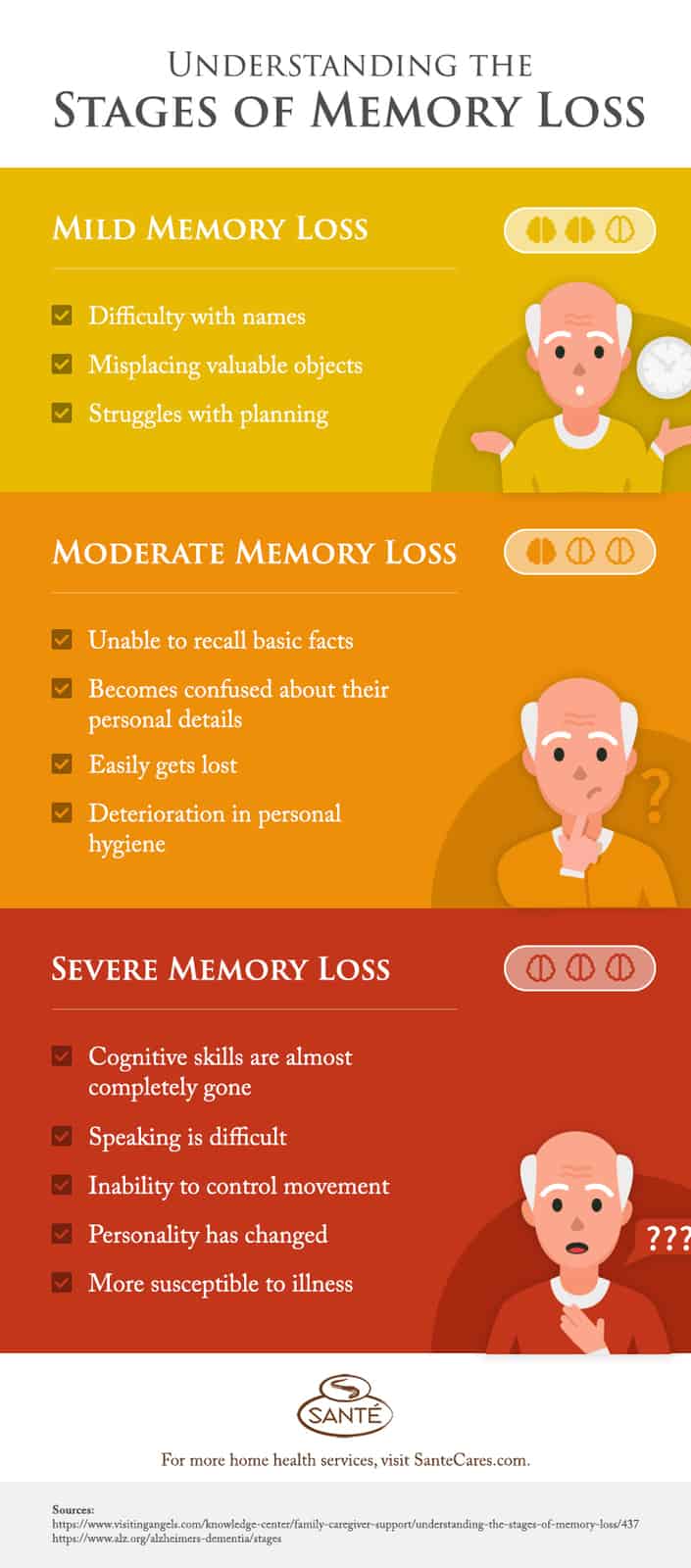
Understanding the Stages of Memory Loss
As we age, it’s not unusual for everyone to deal with memory loss. For most people, this could be as simple as forgetting where you last placed your keys or glasses. But, it can be much more impactful for individuals who have been diagnosed with Alzheimer’s or dementia. Serious memory loss could include everything from forgetting your own name to dramatic symptoms such as the loss of physical abilities such as swallowing. Here is an overview of the three of the primary stages of memory loss.
Mild Memory Loss
It’s not unusual for individuals with mild memory loss to not realize that it’s the precursor to something deeper. You might start to notice difficulty with names, misplacing valuable objects or challenges with complex planning. While you cannot reverse or truly treat Alzheimer’s disease, early intervention can help provide a better quality of life for individuals. In the early stages of dementia or Alzheimer’s, it can be difficult to determine whether your loved one is simply suffering the effects of aging or if they are in the early stages of a deeper issue.
Middle Stage or Moderate Memory Loss
The middle stage of memory loss is generally the longest, and individuals may stay in this state for many years before symptoms begin to progress again. You might notice that a patient with moderate memory loss is unable to recall basic facts or becomes confused about their personal details such as address or phone number or school background. There is an increased tendency to become lost, and there may be some deterioration in personal hygiene habits during this stage as well. That could include difficulty selecting the correct outfit for the season, for instance.
Severe Memory Loss
During the final stages of memory loss, you will see deterioration in cognitive skills, speaking and the ability to control movement. You might see distinct changes in the personality of your loved one, and they are likely to need around-the-clock assistance for personal care. During this stage, patients are more susceptible to pneumonia or other infections and may not be able to communicate if they are uncomfortable or hurting.

Watching your loved one go through these stages is never easy, but understanding the progression of this type of memory loss can help you and your loved one cope in the future. At Santé, our healthcare staff are caring professionals who are compassionate and knowledgeable — providing you with the information that you need to navigate the changes that are coming. Contact us today at 480-563-2402 to learn more about the services that we offer or to set up a visit to one of our locations.



